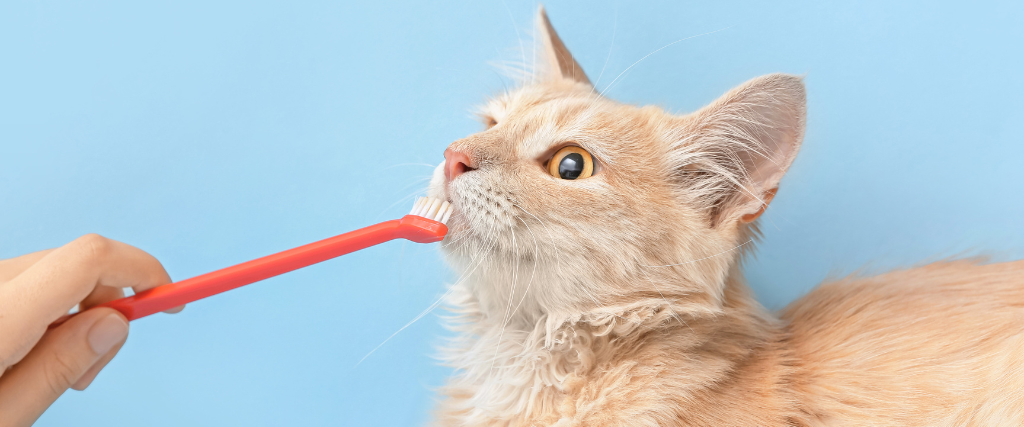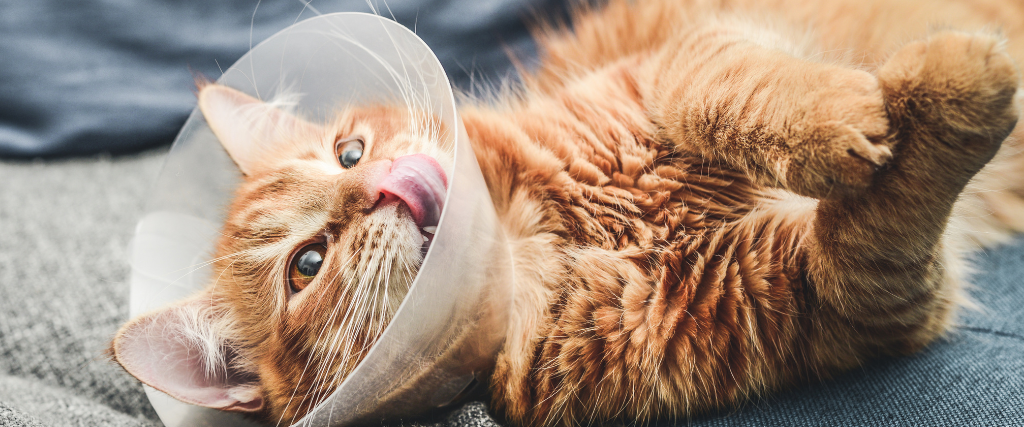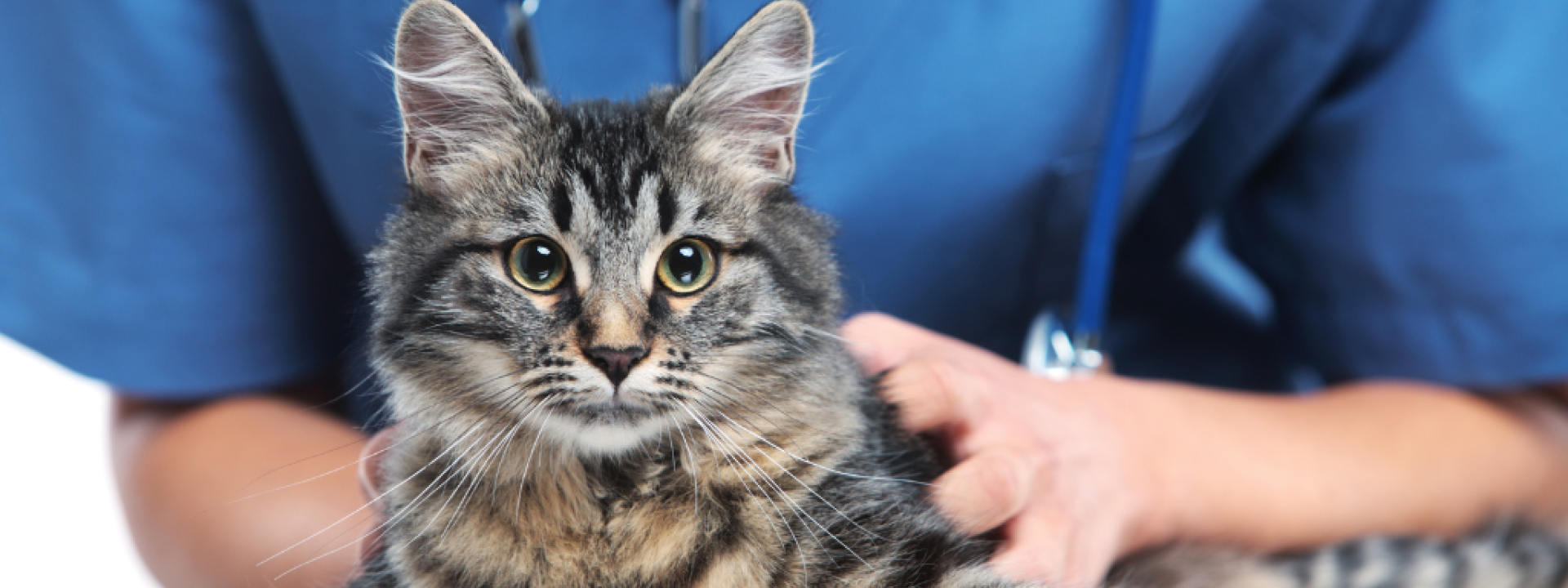October may be mostly associated with falling leaves, pumpkin spice lattes, and spooky Halloween adventures, but there's something else you should definitely know about: National Pet Wellness Month. Wellness care provides a solid foundation for pets' long-term health and includes services like exams, vaccinations, and routine bloodwork. And while you might think your cat doesn't need these services because they are healthy, the consequences of failing to provide adequate wellness care can be scarier than all the thrills and chills of Halloween.
As veterinarians, we recommend twice-yearly wellness exams for our patients. Bringing your feline friend in roughly every six months enables us to keep an eye on their ongoing health and is one of the best ways to keep your pet by your side for as many years as possible.
In honor of National Pet Wellness Month, let's take a look at a few ways to ensure your cat's longevity.
1. Provide a Healthy Diet
Chunky cats are undeniably cute, but there's nothing cute about the health problems linked to obesity. In the United States, an estimated 60% of cats are overweight or obese. This puts them at risk for diabetes, cardiovascular disease, and many other potentially serious health problems. That's why it's so important to keep your feline friend on a healthy diet that meets their needs without making them pack on extra pounds.
As your cat's vet, we can help you select the right food and provide guidance on how much and how often you should feed them. Hint: You definitely shouldn't be leaving out a big bowl of dry kibble for your cat to munch on as they please.
2. Keep Their Vaccinations Updated
Modern vaccines are highly effective at protecting cats from potentially deadly diseases like rabies. They're also safe, and vaccine reactions and side effects are extremely rare. Kittens should receive their first vaccinations when they are six to eight weeks old and continue the series until they are fully vaccinated at around 16 weeks old. Then, they need boosters throughout their lives to maintain their protection.
While the rabies vaccine is the only one mandated by law in most areas, there are several others that are just as important. Known as core vaccines, they protect cats from several diseases.
Core vaccines for cats include:
- Feline rhinotracheitis
- Feline calicivirus
- Feline panleukopenia
- Rabies
Rabies is given in one shot, while the other three are administered in a three-in-one shot known as the FVRCP vaccine. Depending on lifestyle factors like whether your cat goes outside or visits grooming salons, we may also recommend the non-core feline leukemia virus and Bordetella vaccines. Don't skip on other preventatives like flea and tick if you may have other pets that go outside.
Keeping your cat's vaccines up to date protects them from diseases that could shorten their life. Vaccine appointments only take a few minutes but can add years to cats' lives.

3. Take Care of Their Teeth
Dental care is an important part of wellness care. Unfortunately, it's often overlooked. As a result, most cats suffer from some degree of periodontal disease by the time they're three years old.
The symptoms of periodontal disease include:
- Decreased appetite
- Increased vocalization
- Pawing at the mouth
- Dropping food while eating
- Refusing to eat dry kibble
- Foul-smelling breath
- Missing, damaged, or discolored teeth
- Red, swollen gums
At home oral hygiene is a crucial part of good oral health. Just like for humans, cats need their teeth brushed too! We are happy to help you learn how to perform this task and can also equip you with the right supplies. Having your cat's teeth examined annually can prevent those symptoms and help them live a comfortable, pain-free life. However, failing to keep up with dental care could lead to infections. And those infections can spread throughout the body via the bloodstream, potentially damaging the kidneys, liver, and heart along the way.
4. Take Note of Behavioral Changes
Cats are notorious for their ability to hide that they are sick. Because of this, they often don't receive veterinary care until the problem has become quite advanced. Monitoring your cat's behavior and taking note of any changes in their behavior is an important step in keeping them around for as long as possible. Even small things like spending more time hiding under the bed or not wanting to be cuddled could be signs that they are sick. We recommend bringing them in for a checkup anytime they exhibit unusual behavior that lasts more than 24 hours. Of course, you should always seek immediate veterinary care for severe behavioral changes.

5. Have Them Spayed or Neutered
Spaying and neutering are routine procedures that prevent unplanned litters. They do much more than just that, though. They also make cats less susceptible to certain health problems. Having your cat spayed eliminates her risk of developing uterine cancer or infections. Spaying also prevents ovarian cancer and makes cats less susceptible to mammary tumors and cancer. In males, neutering prevents testicular cancer and makes cats less prone to prostate problems. These routine procedures also decrease the risk of endocrine disorders in both sexes.
The risk of complications during surgery is extremely low, and most cats recover quickly from being spayed or neutered. As your cat's veterinarian, we'll take every precaution to make sure they're safe and comfortable before, during, and after their procedure. We'll also be here to address any concerns you may have during their recovery.
Conclusion
These are just a few of the many steps you can take to ensure your cat's longevity and keep them by your side (or on your lap) for as many years as possible. As your cat's vet, we're here to provide additional guidance to help you meet their unique needs so they can enjoy a long, healthy life. Contact us today to schedule an appointment.

